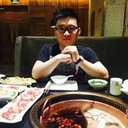Lung cancer among Chinese women.
关键词
抽象
A case-control study involving interviews with 672 female lung cancer patients and 735 population-based controls was conducted to investigate the high rates of lung cancer, notably adenocarcinoma, among women in Shanghai. Cigarette smoking was a strong risk factor, but accounted for only about one-fourth of all newly diagnosed cases of lung cancer. Most patients, particularly with adenocarcinoma, were life-long non-smokers. The risks of lung cancer were higher among women reporting tuberculosis and other pre-existing lung diseases. Hormonal factors were suggested by an increased risk associated with late menopause and by a gradient in the risk of adenocarcinoma with decreasing menstrual cycle length, with a 3-fold excess among women who had shorter cycles. Perhaps most intriguing were associations found between lung cancer and measures of exposure to cooking oil vapors. Risks increased with the numbers of meals cooked by either stir frying, deep frying or boiling; with the frequency of smokiness during cooking; and with the frequency of eye irritation during cooking. Use of rapeseed oil, whose volatiles following high-temperature cooking may be mutagenic, was also reported more often by the cancer patients. The findings thus confirm that factors other than smoking are responsible for the high risk of lung cancer among Chinese women and provide clues for further research, including the assessment of cooking practices.



